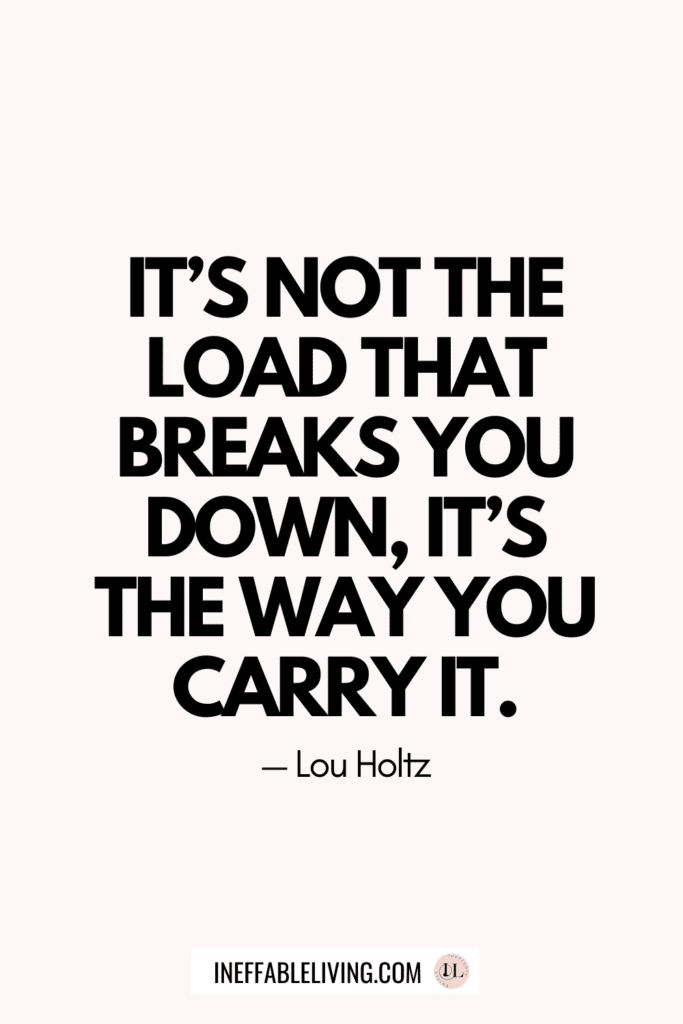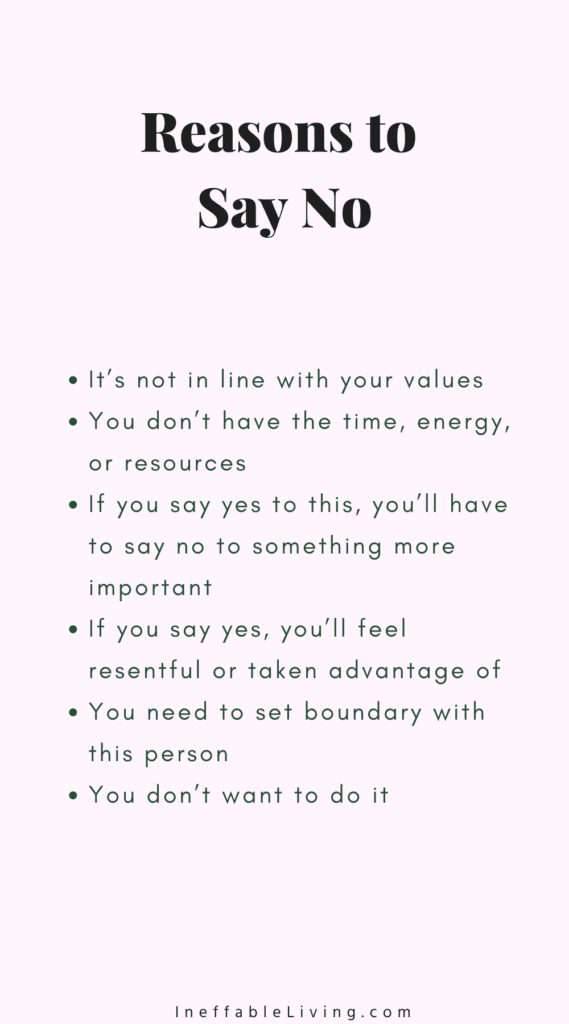This post contains some of the best compassion fatigue quotes.
What Is Compassion Fatigue?
Compassion fatigue is a term that describes the physical, emotional, and psychological impact related helping others — often through experiences of stress or trauma.
Compassion fatigue is sometimes called a secondhand trauma, or secondary stress reaction because of compassion fatigue’s link to professions that involve healing or helping capacity, such as medicine, therapy, legal professions, etc.
Sings of compassion fatigue are similar to those of trauma or stress, such as mood swings, experiencing detachment, feelings of anxiety or depression, trouble sleeping, etc.
Related: Caregiving vs Caretaking (The Savior Complex)
Taking the ProQOL
The ProQOL is the most widely used measure of compassion fatigue.
Take your time as you read and respond to the questions: The Test

Compassion Fatigue Quotes
1. “…compassion fatigue results in higher levels of helplessness and a feeling of being isolated from a support network.” – Thomas M. Skovholt and Michelle Trotter-Mathison
2. “A term parallel to burnout in some ways, yet distinct, Figley identified the concept of compassion fatigue: “the natural consequent behaviors and emotions resulting from knowing about a traumatizing event experienced by a significant other – the stress resulting from helping or wanting to help a traumatized or suffering person”” – Thomas M. Skovholt and Michelle Trotter-Mathison
3. “As can be seen, there is a similarity between PTSD and compassion fatigue. PTSD is most often, but not always, the direct result of someone experiencing some form of trauma, whereas compassion fatigue is usually a result of witnessing someone else’s suffering.” – Vidette Todaro-Franceschi
4. “Balance is not better time management, but better boundary management. Balance means making choices and enjoying those choices.” — Betsy Jacobson
Related: Take The Echoist Quiz (The Opposite Of A Narcissist)
5. “Bearing witness to one’s own feelings, especially suffering, is difficult but necessary in order to enhance professional quality of life and heal from compassion fatigue. How do you feel when you are going into work? Are you looking forward to work or are you dreading it? Do you feel tired?” – Vidette Todaro-Franceschi
6. “Being overwhelmed means that your life or work is overpowering you. Regain control by clarifying your intentions, setting realistic expectations, and focusing on your next step.” — Daphne Michaels
7. “Compassion fatigue and burnout are the two most frequently talked about aspects of professional quality of life.” – Vidette Todaro-Franceschi
8. “Compassion fatigue can be healed and many times even averted if we are mindfully aware of how we are acting in the workplace.” – Vidette Todaro-Franceschi
9. “Compassion fatigue comes when one hears the telling of the Other’s story as traumatic or when the chronicity and severity of client/student/patient suffering over time is great.” – Thomas M. Skovholt and Michelle Trotter-Mathison
10. “Compassion fatigue is a syndrome that carers may develop when they internalize pain or anguish related to other people in their work environment.” – Vidette Todaro-Franceschi
Related: Codependency Quiz (+FREE Codependency Worksheets PDF)
11. “Compassion fatigue is a syndrome that occurs suddenly in response to a distressing or traumatic experience. It is relational in nature in that the compassion-fatigued individual is usually co-suffering with or internalizing the pain and anguish related to another.” – Vidette Todaro-Franceschi
12. “Compassion fatigue is relational in nature, meaning it arises through one’s relationships with others.” – Vidette Todaro-Franceschi
13. “Compassion fatigue represents a difficulty for the practitioner in regenerating and renewing after engagement with clients/students/patients and an inability to engage successfully in the re-creation phase of the Cycle of Caring.” – Thomas M. Skovholt and Michelle Trotter-Mathison
14. “Compassion fatigue results from exposure to hearing about or supporting a client who has suffered from a traumatic event or events.” – Thomas M. Skovholt and Michelle Trotter-Mathison
Related: What Causes Codependency? Top 6 Reasons You May Be Codependent
15. “Cut yourself some slack. You’re doing better than you think.” — Unknown
16. “Do male nurses suffer from compassion fatigue and burnout? Absolutely! But many of the issues that prevail in nursing do so because of the male – female thing, the gender inequity that persists both overtly and covertly.” – Vidette Todaro-Franceschi
17. “I discovered that compassion fatigue is a real thing. Emotions, so strong at first, can easily shift into apathy. The subsequent guilt is paralyzing; it can prevent us from ever doing anything and freeze us into inaction. No wonder some people live for themselves, unaware of or unengaged with those who desperately need help. When global problems overwhelm, the human tendency is to do nothing.” ― Chris Marlow
18. “If we are compassion fatigued, reconnecting with ourselves and others can help us to heal.” – Vidette Todaro-Franceschi
19. “If you have identified that you are compassion fatigued, you need to explore possible turning points and try to establish what factors in your work may have contributed to it. Looking back, can you recognize when you began to feel the way you are feeling? Depending on your circumstances, there may be more than one thing that you need to address. ” – Vidette Todaro-Franceschi
Related: Best 10 Codependency Blogs (+FREE Resources on Codependency)
20. “In cases of compassion fatigue, we co-suffer with those who are ill and/or may be facing the threat of death or are actually dying.” – Vidette Todaro-Franceschi
21. “It has been noted that both compassion fatigue and burnout seem to arise as a result of failed survival strategies related to the inability to achieve one’s goals.” – Vidette Todaro-Franceschi
22. “It’s not the load that breaks you down, it’s the way you carry it.” — Lou Holtz
23. “Just as compassion fatigue and burnout out are contagious, compassion is contagious. So why is it that we have few forums in the workplace where we can visibly share the horrors we silently witness and silently share together?” – Vidette Todaro-Franceschi
24. “Long recognized as a profession grounded in presence, the therapeutic use of self, caring, and compassion, nurses are especially at risk for moral distress, compassion fatigue, and burnout when consistently unable to provide the type of humanistic care that patients and families need.” – Vidette Todaro-Franceschi
Related: Best 50 Codependency Affirmations For Recovering Codependents
25. “Many things contribute to the development of nurse burnout, including unresolved compassion fatigue, build-up of moral residue, the way one has been educated (or lack thereof), devaluing the art of nursing (the caring aspects of nursing) while stressing the science, inequity in treatment, lack of respect, unrealistic expectations (related to heavy workload, lack of resources, etc.), incivility and bullying in the workplace, (and the list goes on and on and on …).” – Vidette Todaro-Franceschi
26. “My observations, both formal and informal, indicate that those who feel unprepared to care for the dying and their loved ones are at greater risk for compassion fatigue.” – Vidette Todaro-Franceschi
27. “No beating yourself up. That’s not allowed. Be patient with yourself.” — Holly Mosier
28. “No matter what leads to compassion fatigue and burnout, it is clear that some kind of purposeful action is necessary in order to heal from these syndromes, and with adequate knowledge of contributing factors, one may be able to evade the occurrence or at least minimize the effects of compassion fatigue and/or burnout. Thus, the first step is to be able to recognize and acknowledge that there is a problem brewing.” – Vidette Todaro-Franceschi
29. “Nobody’s perfect, so give yourself credit for everything you’re doing right, and be kind to yourself when you struggle.” — Lori Deschene
Related: Top 20 Practical Ways to Overcome Toxic Perfectionism (& Get Things Done)
30. “Nurse educators can do much to minimize and prevent the contagion of the syndromes of compassion fatigue and burnout. In schools of nursing the curricula should include compassion skills, assertiveness and advocacy training, self-care strategies, and end-of-life care—not just a dab of it here and there, at least a full course immersion of it. It should not be pot luck whether our future nurses are taught this content.” – Vidette Todaro-Franceschi
31. “Nurses are especially vulnerable to developing compassion fatigue because we are continually bearing witness to the suffering of others.” – Vidette Todaro-Franceschi
32. “Nurses need to be aware of this phenomenon—compassion fatigue and the related syndrome of burnout—that is infecting the nursing workforce like a plague.” – Vidette Todaro-Franceschi
33. “Nurses who bear witness to human suffering on a regular basis are especially at risk of compassion fatigue.” – Vidette Todaro-Franceschi
34. “Nurses who work in areas with people who are dying are especially vulnerable to compassion fatigue and moral distress because they are the ones at the bedside bearing witness to suffering, both from medically futile care and from the “failure to cure.”” – Vidette Todaro-Franceschi
Related: Am I A Perfectionist Quiz
35. “Once you are on the path to healing you can try to prevent the reoccurrence (or minimize the occurrence) of compassion fatigue through mindful awareness. Pay attention to how you are living.” – Vidette Todaro-Franceschi

36. “PTSD is often noted to be very similar to compassion fatigue, but it has a much bigger scope.” – Vidette Todaro-Franceschi
37. “Remaining connected to ourselves and our patients—being true to our authentic caring nature as nurses and remaining cognizant of the meaning and purpose of our work—can help to avert compassion fatigue.” – Vidette Todaro-Franceschi
38. “Repeated or prolonged exposure to trauma, which is relational in nature, can lead to the sudden occurrence of compassion fatigue.” – Vidette Todaro-Franceschi
39. “Self-care is giving yourself permission to pause.” — Cecilia Tran
40. “Self-care is how you take your power back.” — Lalah Delia
41. “Since there are so many things that might contribute to compassion fatigue, there will be lots of choices and purposeful actions that only you can identify, given your unique situation. Once you have figured out what choices you have depending upon your circumstances, you are ready to take action to begin to heal and to reaffirm purpose.” – Vidette Todaro-Franceschi
Related: Top 30 Affirmations For Perfectionism (+FREE Worksheets)
42. “Slowly you may have transformed from a helper to one in need of help. It’s important to talk about this, to identify the wounds you carry.” ― Jenn Bruer
43. “Some start off their careers already burned out! Or, at the very least, they become compassion fatigued early on, perhaps even while still in school. I have heard it said that we go into the profession of nursing with a na¨ıve idealism that is quickly knocked out of us in the harshness of the workplace and that it is the real conflicting with the ideal that makes us more vulnerable to the syndrome of burnout.” – Vidette Todaro-Franceschi
44. “Sometimes the most important thing in a whole day is the rest we take between two deep breaths.” — Etty Hillesum
45. “Take rest. A field that has rested gives a bountiful crop.” — Ovid
46. “The classic indication that one is experiencing compassion fatigue is feeling heart heavy and overburdened while continuing to do the work.” – Vidette Todaro-Franceschi
47. “The compassion fatigue and related PTSD experienced by the carers of veterans is widespread too; the Army has its own term, “provider fatigue,” for the people who develop PTSD themselves while caring for traumatized veterans.” – Vidette Todaro-Franceschi
Related: Love Addiction Test (+ Resources For Love Addiction)
48. “The many, many nurses who are compassion fatigued, morally distressed, and/or burned out, along with the bullied (and the bullies), need to turn toward themselves and one another.” – Vidette Todaro-Franceschi
49. “There is some evidence to show that many individuals who provide care that they believe to be medically futile (care that will not lead to eventual cure or a better quality of life) develop compassion fatigue and burnout.” – Vidette Todaro-Franceschi
50. “Typically, compassion fatigue manifests suddenly while caring for those who are suffering from any kind of physical or mental anguish or trauma.” – Vidette Todaro-Franceschi
51. “Unlike compassion fatigue, which is sudden in onset, burnout sneaks up on you, developing gradually over time.” – Vidette Todaro-Franceschi
52. “We do not have to accept compassion fatigue and/ or burnout as the costs of caring; with intention, we can make choices that help us to reaffirm our purpose and actively sidestep feeling dissatisfied and disenchanted with our work.” – Vidette Todaro-Franceschi
53. “We have outstretched our personal boundaries and forgotten that true happiness comes from living an authentic life fueled with a sense of purpose and balance.” — Dr. Kathleen Hall
54. “What is deemed negative or bad—compassion fatigue—is a pattern of the whole, a pattern which indicates that transformation is needed. When we get to the ugly—burnout—we have become automated, apathetic, and are working mindlessly rather than mindfully.” – Vidette Todaro-Franceschi
Related: How to Recover From Codependency And Savior Complex?
55. “When the practitioner’s life stage/story intersects with the chronic hearing of a traumatic event, this has the potential to create compassion fatigue.” – Thomas M. Skovholt and Michelle Trotter-Mathison
56. “Where nurses work can contribute to the development of compassion fatigue. In areas where there is a higher incidence of dying and death, suffering is more visible, and, thus, larger numbers of nurses are at risk. Death overload, a term used to denote having experienced the death of too many patients in a short period or having worked with a patient for too long a time prior to the person dying, is also a form of traumatic stress.” – Vidette Todaro-Franceschi
57. “Whereas compassion fatigue is related to our connection to others and our ability to bear witness to the suffering of others, burnout arises out of a more generalized dissatisfaction with one’s work life, and it is usually the result of a multitude of things.” – Vidette Todaro-Franceschi
58. “While we can offer our guidance and a shoulder to cry on, our responsibility does not lie in fixing others and their problems. We need to draw the line when it comes to giving help and remember that other people must ultimately take responsibility for their happiness, not us.” ― Aletheia Luna
59. “You are not required to set yourself on fire to keep other people warm.” — Unknown
Related: How To Overcome High Functioning Codependency?
Conclusion
Compassion fatigue (also called caregiver fatigue, caregiver stress, compassion stress, secondary traumatization, vicarious traumatization, etc.) is a real and expected consequence of working with people who are suffering or who have experience trauma.


References
- Compassion fatigue – Wikipedia
- Compassion Fatigue: Symptoms To Look For (webmd.com)
- Compassion Fatigue Awareness Project – Home
- Compassion Fatigue among Healthcare, Emergency and Community Service Workers: A Systematic Review – PMC (nih.gov)
- Compassion Fatigue | Psychology Today
- Compassion Fatigue: Watch for These Warning Signs | Banner (bannerhealth.com)



